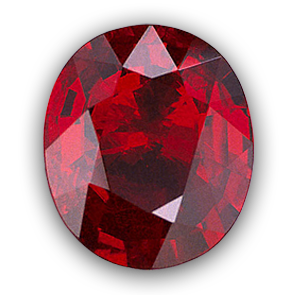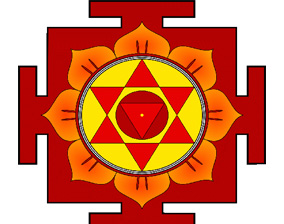The information and astrological interpretations at this site are for entertainment purposes only. By utilizing and accessing Astrosuggestions.com and / or by requesting and/or receiving astrological interpretations and/or advice either through the site or any of the guests or affiliates of the company, you agree to release Astrosuggestions.com from any and all liability with regard to the contents of the site and/or advice received. By requesting services, products, advice or any information from Astrosuggestions.com, you agree that Astrosuggestions.com is to be considered a curio and entertainment on your behalf. Advice or content may or may not influence your decisions and/or behaviour. You agree that by accessing Astrosuggestions.com you take full responsibility for any and all consequences acted upon in utilizing the information provided within our site. Astrology and Forecasting Reports and updates by Astrosuggestions.com and the advice and opinions offered, either written, verbal - by telephone, email or personal consultation are calculated using accurate software systems and are based on the accuracy of birth data provided. Information, forecasts, predictions and life or business trends provided by Astrosuggestions.com should be taken strictly as guidelines and suggestions. Astrosuggestions.com in no way suggests infallibility where forecasts are concerned and therefore rescinds liability for any personal, business or health decision. For questions of a medical nature please consult a doctor or medical professional. Financial or speculative queries ought to be referred to expert financial advisors. Persons under 18 years of age (children) must receive the consent of a parent if they wish to purchase an astrological consultation, however, Astrosuggestions.com does not monitor or take responsibility in screening its visitors or their age status. If for political, cultural or social reasons astrology and / or esoteric and metaphysics of any kind is illegal in your locality, by accessing this site and / or by receiving astrological information and the associated services or products from Astrosuggestions.com, you agree that you do so of your own free will and that you will not hold Astrosuggestions.com culpable or responsible in any way for any legal ramifications, which you might incur as a result. This Web site contains links to other Web sites. Astrosuggestions.com is not responsible for the privacy practices or the content of such Web sites. If you have any questions about our privacy practices, please click here. Third Party Consultants Astrosuggestions.com from time to time invites speakers and guests to its chat rooms. Whilst the web site upholds an individual's right to express philosophical or esoteric and even political opinions, we in no way endorse those opinions and take no responsibility for personal offense or grievances which may occur. • Astrology • Astrology is the study of correlations of celestial events with behavior on earth, particularly correlations which cannot be explained by gravitation, magnetism, or other forces that are well-established in physics or other sciences. A "celestial event" is any event in the sky. For example, the Sun rising is a celestial event, or any two planets appearing in the same place in the sky is a celestial event. The celestial event can involve any celestial body, whether it be the Sun, Moon, a planet, an asteroid, comet, star, black hole, quasar, or other celestial object. • The celestial event may also not involve any physical body at all, such as when, for example, the Moon's North Node (as we shall find out later, the Moon's North Node is not a physical object) is on the eastern horizon. The eastern horizon is, of course, simply where the sky meets the horizon of the earth in the easterly direction, and therefore is also not a physical body like a planet or star. • Some people mention that the Moon's position affects the tides of the ocean, as an example of an astrological influence, but the correlation of ocean tides with the Moon's position can be explained by gravitation so it is not really astrological in that the rules used by astrologers generally cannot be explained by gravitation or other forces known in the sciences. Astrology has been used by virtually every advanced civilization for thousands of years, but it has almost always been very controversial as well. Today, skepticism about astrology is as strong as ever, and there are many good reasons for this. Astrology has its roots in ancient times when less scientific methods were employed and superstition was rampant in many of these civilizations. • The only exposure that many people have had to astrology is the sun sign columns in the newspaper or a glamorous psychic astrologer on television. Thus, it is hardly surprising that astrology is generally not accepted as a legitimate and valid field of inquiry by academia. Resistance to astrology in academia is strong. The Kepler program and other fine work being done in the field of astrology today will hopefully open the eyes of many people to a valuable tool that is being overlooked. • Some people confuse astrology with astronomy. Astronomy is the science that studies celestial phenomena physically. All objects in the sky are studied in terms of their constitution, position, history, etc. Astronomy, of course, is a science and no one disputes its validity. Astrology goes a step beyond astronomy by making correlations of celestial phenomena with events on earth, and these correlations are not of a nature that can be easily explained by traditional scientific concepts. • Astrology is highly controversial, and currently (as of 1998; this may change in the near future) an accredited college degree is not available in astrology, which exemplifies the fact that astrology is currently not well-received in most academic circles. • Note that no one has proven how astrology works. There are many different views on how or why astrology might work, but there is not single conclusive answer that has been demonstrated to the satisfaction of all astrologers. Astrology is the study of the correlation between celestial phenomena and behavior on earth but why should this correlation exist? • There are many possible answers and I will not go into those now. Note that the lack of a clear explanation of why the correlation should exist, or the fact that the existence of such a correlation seems absurd to many scientists and non-scientists alike, does not in itself make astrology unscientific. Scientists can analyze correlations and perfect their ability to predict based on these correlations without knowing why the correlation exists. Experts in scientific methodology emphasize that science ultimately is about making observations and theories help us understand the observations. • The ability to predict that an apple will fall to the ground if dropped is a scientifically verifiable statement and it does not require the theory of gravitation to make it more scientific. However, the theory of gravitation allows us to understand not only why the apple falls to the ground, but also a myriad other phenomena such as why planets revolve around the Sun and the Moon revolves around the Earth. The power of a scientific theory is that it expands our ability to make predictions about other phenomena, but the lack of good theories does not make a replicable experiment less scientific. Planets Astrology and The Planets The Sun Mercury Venus Moon Mars North Node Jupiter Saturn Uranus Neptune Pluto South Node The planets are heavenly bodies orbiting our Sun and are believed by astrology to not only impact terrestrial events but also life on Earth. Different configurations and aspects of these planets creates subtle forces influencing the biological, mental and emotional states of individuals. Astrology believes that these planets indeed influence our destiny. By understanding the repeated influence of certain configurations and aspects, astrologers can determine the destiny of individuals using historic observations. There are nine planets that we are aware of thus far that orbit the sun. Since 1992, a few additional planets have been discovered orbiting other stars. Vedic astrologers contend that there are also sub planets and the nodes such as Rahu ( Lunar North Node ) and Ketu ( Lunar South Node ). There is an order of the planets usually listed by an outward distance from the Sun - Mercury, Venus, Earth, Mars, Jupiter, Saturn, Uranus, Neptune, Pluto, North Node and South Node. Pluto is not always the most distant planet from our Sun, but because of its very eccentric orbit moves inside the path of Neptune for about 20 years every 248 years. According to astrology the planets are classed as personal and impersonal. The innermost four planets -- Mercury, Venus, and Mars -- are the personal planets whereas the next five, Jupiter, Saturn, Uranus, and Neptune and Pluto -- are called impersonal. Rahu and Ketu can be classed as nebulous and at times personal and at other times impersonal. These are also referred to as shadowy planets or point sources of energy. The planets rule the 12 signs of the zodiac in the following manner: • Leo = governed by the Sun • Gemini or Virgo = governed by Mercury • Taurus & Libra = governed by Venus • Cancer = governed by Moon • Aries = governed by Mars • Sagittarius = governed by Jupiter • Capricorn = governed by Saturn • Aquarius = governed by Saturn and Uranus (In modern astrology Aquarius is ruled by Uranus) • Pisces = governed by Neptune (In old school astrology Pisces is also ruled by Jupiter) • Scorpio = governed by Pluto (In old school astrology Scorpio is also ruled by Mars) There is some contention among scholars as to which signs of the zodiac Rahu and Ketu rule but some are of the opinion that Rahu rules Aquarius and Ketu rules Scorpio. Rahu is also known as an agent of Saturn while Ketu is an agent of Mars. In other words these planets give similar results to the planets of which they are agents. • Horoscope Signs The Signs Broadly speaking, the 12 signs of the Zodiac can be divided into both masculine and feminine, positive and negative, or, active and passive. The masculine signs are Aries, Gemini, Leo, Libra, Sagittarius and Aquarius, whereas the feminine signs are Taurus, Cancer, Virgo, Scorpio, Capricorn and Pisces. If you are unsure about your sign, click here to find out. The Quaternaries - The Quaternaries are three in number - this means that the 12 signs of the Zodiac are divided into three categories of four signs each. They are called the Cardinal signs, the Fixed signs and the Mutable signs. The Cardinal Signs - The Cardinal signs are Aries, Cancer, Libra and Capricorn which are the signs of dynamic change, movement and great vitality. The Fixed Signs - The Fixed signs are Taurus, Leo, Scorpio and Aquarius and relate to stability, earthiness and fixity. The determination of the Fixed signs expresses itself in the form of great willpower. The Mutable Signs - The Mutable signs cover Gemini, Virgo, Sagittarius and Pisces which are the adaptable and interchangeable signs capable of molding and modifying circumstances and conditions in life. • Houses of the Zodiac The Twelve Houses of the Zodiac The twelve houses of the Zodiac were first set out by the Babylonians and are now used and recognized by almost all of today's astrologers. The houses were discovered when the Babylonians started to observed the natural phenomena associated with ascending and culminating of the heavenly bodies. It was through this that the 12 houses were divided, before the discovery of the ecliptic. The houses represented different parts of life, numbered from the east downward under the horizon with the first six houses below the horizon and the next six above it. The houses positions depend on time and location as opposed to dates, with each house in your natal chart being ruled by a specific Zodiac sign.
- Home »
- Disclaimer
Free Service
-

Love Compatability
Find out if you and your love impressed or partner are soulmates, best friends or strangers. -

Zodiac Sign Compatability
How compatible are you with other zodiac partners and discover some special insight to understand other sunsign compatability. -

Panchagam Tool
Know the most auspicious time to travel and to start any work so that work is fulfilled without any obsticals.
Personalised Suggestions
-

Mantra For You
Remove obsticals from your life by chanting of specific benifical mantra's for you. -

Gemstone For You
Find out your lucky gemstones for altering your life and luck according to indian astrology. -

Yantra For You
Get personlised suggestions for yantra's for maintaining the balance and harmony in your life.











